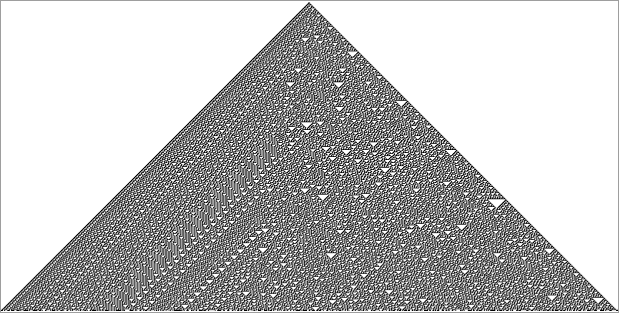Unsorted not-so-mathematical links, June 2017: Train Stations, Cybernetics in USSR, Yellow Printer Dots
A monthly collection of random links and commentary, now split to two parts: math and tech-heavy and less-mathematical (the one you are reading now). This post covers approx the past June.
Links
RIP Adam West
[culture.comics, culture.tv, culture.adam_west, culture.rip]
Lost Americana
[things.rocket_mail, technology.rockets, things.batshit_insane]
Cellular Automata Train Station
[random.train_stations, math.cellular_automata, random.rule30, places.cambridge_uk, math.pop]
Stephen Wolfram found a train station covered on a cellular autamata art.. Read more about cellular automata than you knew you wanted to know.

(And of course the train station is in Cambridge.)
Lesson About Pie Charts and Principles of Visualization
[random.pies, stats.pie_charts, stats.visualization, stats.plots]
…
[history.usenet, culture.tolkien, culture.humor]
From the dawn of the internet (known as Usenet): The Tolkien Crackpot Theories of rec.arts.books.tolkien.
Statisticians in World War II
[culture.mathematics, culture.statistics, stats.general, stats.history, history.general, history.science]
Economist, Dec 17th 2014: They also served: How statisticians changed the war, and the war changed statistics.
…
[history.general]
This one is a couple of months old (via Twitter). During the early 20th century, the Finnish working class people were suprisiginyly active at going to lectures (in Finnish). What happened to that? Speculation: either the quality of less-educational entertainment at entertaining improved, or the workers found out that spending their time becoming more educated on biology and philosophy and other abstract topics … was not useful?
Yuval Noah Harari
[future.scary, random.nightmare_scenarios]
Yuval Noah Harari presents a nightmare scenario for the humanity’s future:
The Guardian, May 2017: Are we about to witness the most unequal societies in history?
Note. Modern armies can pile hi-tech upon hi-tech on a chosen few soldiers, but it that because a) it’s the future of warfare or b) they are not engaging in pitched battles (or rather, the modern large scale equivalent) against armies of their equals (and instead are often involved in what could be described asymmetrical warfare). I doubt the “few hi-tech soldiers” strategy would turn out sustainable if there ever will be another major land war in Europe that continues longer than a week.
Cyberpunk
[culture.cyberpunk, technology.issues, culture.essays]
An essay. About 15 min.
Noticing the moments of techno-dystopia in our world can jolt people awake, causing them to realize how computing — especially the internet — is impacting their lives on every scale.
Concerning Scientific Publishing
[academia.general, science.publishing]
Meanwhile, here on the planet math and CS, most of the publications are available on arxiv.org.
Not-So-Tech-Savvy Journalism
[things.mistakes, journalism.general, things.yellow_dots, things.printers]
How, exactly, the Intercept mismanaged the publication process of the R. Winner leak. (Who remembers R. Winner leak?)
Robotic Ironing Overlords
[technology.robots, culture.futurism, future.robots]
The Atlantic should be happy about this: A robot that irons your shirts.
And when they are not. NYPost, June 15, 2017: “US military will have more combat robots than human soldiers by 2025”.
Berkeley AI Blog
[academia.outreach, applied.AI, blogs.EN]
Berkeley researchers have now a cool blog aimed towards “the general audience”, starting with fun introduction to Neural Module Networks.
Mathstodon
[culture.social_media, random.twitter_clones, things.mathstodon]
Lately I’ve been experimenting with Mathstodon.
It’s like Twitter, except the Mathstodon server has far less people and thus more manageable amount of content.
Geometrical Book Art
[math.art, things.book_art]
Huh.
(Those poor book spines ;_;.)
More about gerrymandering
[politics.US, politics.gerrymandering]
I already wrote a bit about this, here is a Nature’s take on the subject:
Nature. Link.
Note. See also this blog on “mathematics of democracy” post from 2012 on AMS blogs.
Next Star Wars Film Directors Fired
[culture.films, culture.star_wars, culture.nerds, culture.scifi]
Finnish film critic Kalle Kinnunen comments (FI).
Look to Windward
[books.fiction, books.science_fiction, culture.scifi, culture.books, culture.genre]
Read. For slightly more wordy review, see John Aegard’s review in Strange Horizons (2000; the book wasn’t very recent).
Discussion on Philosophy of Science, From a Statistics Viewpoint
[philosophy.science, philosophy.statistics, stats.general]
More commentary on Gelman’s blog.
Not sure if I have had enough time to think about this form my own opinion.
More Gelman
[stats.bayesian]
Note. See Daniel Lakeland’s comments down in the comment section.
Basic Income Experiments
[random.basic_income_experiments]
Monthly Orwell Factum
[culture.george_orwell]
Not so surprisingly, the Soviets did attempt to prevent Animal Farm from being published.
New Planet in the Solar System?
[science.solar_system, space.things, space.planets]
University of Helsinki Makes Drastic Changes to Degree Structure, Receives Criticism
[academia.helsinki]
Mainly concerns humanities; I’m not familiar how the Great Change (known as “Big Wheel”) affects them (aside from reading this article). In defense of BW: Meanwhile here in Kumpula, new math/stat/CS programs actually look quite fun. One wonders about what happens to academic freedom to take courses very freely (if you can keep up), though, if the university imposes hard degree size (as measured by the number of course credits) limits?
Origami Algorithm
[things.origami, math.general]
Didn’t look in detail and totally outside of field, but looks fun.
Spot the Rover
[space.mars, things.rovers, science.solar_system]
More NASA
[science.solar_system, space.uranus, space.neptunus]
NASA study considers Uranus and Neptune missions.
Single Transfereable Vote
[things.elections, things.election_systems]
(No political commentary intended.) Greens Party of Finland uses STV for their internal chairperson elections. Nice visualization of how STV works in practice was posted on Finnish subreddit.
Fallacies are a Fallacy
[philosophy.general, philosophy.fallacies]
Your Monthly Dose of Facebook-bashing
[culture.social_media, internet.privacy]
First I meant this category as a joke, but apparently people do write these articles on a monthly basis!?
Should Everyone Learn to Code?
[technology.programming, future.professions]
Andy J. Ko’s take.
I think we’ll ultimately have to rely on the argument of equal access, and not create new universal required courses, but rather high-quality, concise introductions to computing in required courses, high-quality, scalable electives in schools, high-quality scalable materials online, and high-quality scalable teachers everywhere. Only by focusing on the equitable scaling of effective resources will everyone have a chance to develop and interest and ability… if they want to :)
Can’t say I disagree with that.
(I still don’t like Medium, but that can’t be apparently helped if that’s where people want to put their blogs. At least it’s a public platform.)
Related:
A. P. Ershov, 1981. “Programming, the second literacy”. Microprocessing and Microprogramming. Volume 8, Issue 1. link. doi: https://doi.org/10.1016/0165-6074(81)90002-8
Allen Downey, 2017. “Programmin as a Way of Thinking”. Scientific American, Guest Blog April 26, 2017. link
How To Learn to Code in 10 Years
[software.edu, technology.programming]
BTW, see also the classic tutorial by Peter Norvig.
On Knowledge-Seeking Behavior
[science.general, culture.essays]
Great essay:
Abraham Flexner, 1939. “The Usefulness of Useless Knowledge.” Harpers 179.
“Mr. Eastman, Marconi was inevitable. The real credit for everything that has been done in the field of wireless belongs, as far as such fundamental credit can be definitely assigned to anyone, to Professor Clerk Maxwell, who in 1865 carried out certain abstruse and remote calculations in the field of magnetism and electricity.
Gauss
[math.general]
If you have heard about Gauss, you probably have heard about this little story.
(Also, Internet Archive is awesome.)
Keith Devlin on Math Gift Myth
[math.gifted_students, math.edu]
Curta Calculator
[things.curta, technology.calculators]
video no 1 video no 2 WANT.
Towel Day Was Celebrated (Except Me)
[culture.nerds, culture.scifi]
Third year in a row I manage to forget about the Towel Day.
Stubborn Essay by Tyler Cowen
[random.economics]
Cowen has a new book. He is advertizing it with a very long essay. Shorter than the book, I guess though.
USSR and Cybernetics
[culture.soviets, random.cybernetics, applied.linearprog, applied.control_theory, history.ussr]
Gosplan used to be very excited about the idea a predecessor to the AI craze of today: cybernetics. Or in particular, optimal control by linear programming.
Optimizing things in USSR, by Chris Said (2016). HN discussion.
A Tale from Mirror World, Part 1: Calculators and Cybernetics. Digital Antiquarian. (See also parts II, III.)
Quest of Artificial Intelligence
[history.AI, applied.AI]
Nils J. Nilsson. 2010. The Quest for Artificial Intelligence. Cambridge University Press. Free web pdf.
I haven’t got a chance to really delve in (the text is ~700 pages long), but according to the couple of the first chapters and some random samples, this appears to be an excellent overview of the history of AI.
